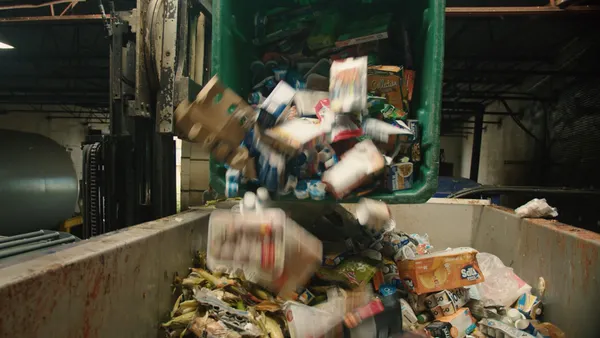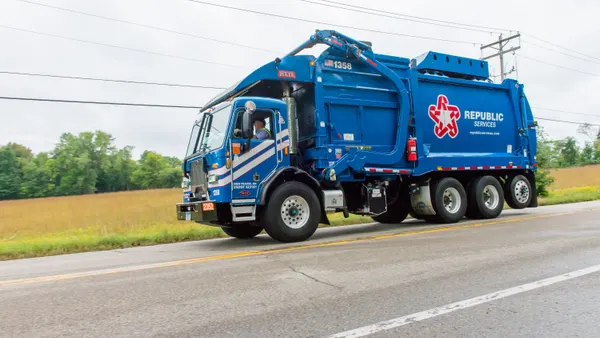Dive Brief:
- Raleigh, NC is partnering with Simple Recycling to bring curbside collection of textiles to its residents beginning Feb. 20, as reported by ABC 11. Simple Recycling will follow Raleigh's recycling collection routes.
- Sonny Wilkins, VP of municipal relations for Simple Recycling, said Raleigh is the first city in North Carolina that the company is working with. "When we first go into a market, we need a place that has quite a bit of density," Wilkins told Waste Dive in an interview.
- Amanda Astor, a communication education specialist for Raleigh Solid Waste Services, told Waste Dive the program is currently set for a three-year pilot. "People here have been really excited for it to start," Astor said.
Dive Insight:
Simple Recycling is currently in seven other states: Michigan, Ohio, Massachusetts, Texas, Minnesota, Illinois and Connecticut. The program can be a boon for cities, as pickup is free of charge to community members and the local government. Simple Recycling sells the clothes it collects and even pays the municipality $20/ton, according to Wilkins.
Once established in a relatively-dense "hub," like Raleigh, the service may expand to nearby communities, Wilkins said. The city, North Carolina's capital, is as good a place as any for a textiles service to start.
The Environmental Protection Agency estimates about 85% of unwanted textiles go to landfills nationally and that county's last waste characterization study (released in 2012) showed textiles make up around 3.7% of residential waste. Astor told Waste Dive that number has likely increased.
Given the amount of textiles that are said to be incinerated or landfilled each day, any recycling or diversion program will likely be seen as welcome. According to the Ellen MacArthur Foundation, there are not many robust, municipal programs for textile collection. There are however, some local government efforts: San Francisco just added textiles to its recycling program and New York has been expanding its drop-off options, while also encouraging more textile reuse.










